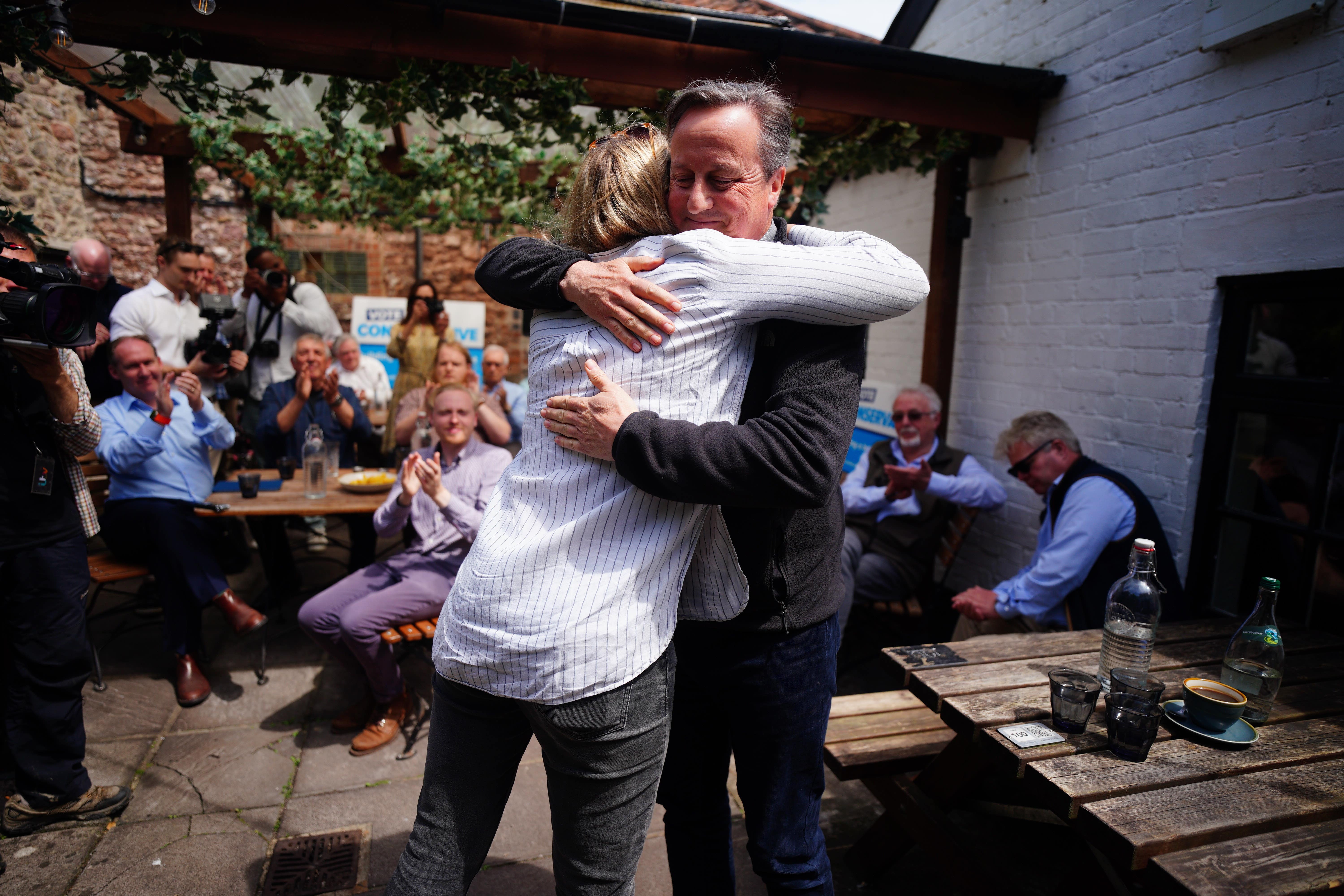In Pictures: Tories hug it out and Keir hits shops as campaign trail continues
The Prime Minister visited Sizewell B in Suffolk while Sir Keir Starmer took a turn round a local Morrisons

There were hugs aplenty among the Conservatives on Wednesday as Rishi Sunak continued to power through the election campaign trail despite the party remaining unpopular in the polls.
The Prime Minister visited Sizewell B in Suffolk, while Foreign Secretary David Cameron met campaigners in Somerset.
Meanwhile, Labour leader Sir Keir Starmer was in Wiltshire where he and shadow chancellor Rachel Reeves were questioned about climate change as they took a turn round a local Morrisons before speaking to shoppers and staff about the cost of living crisis.
Liberal Democrats deputy leader Daisy Cooper visited Farncombe in the Godalming and Ash constituency, a seat which Jeremy Hunt is also contesting, telling campaigners the Conservatives have taken the country “for granted” and the Chancellor “has to go”.
Wednesday also saw SNP leader John Swinney launching his party’s manifesto at Patina in Edinburgh.
He told delegates there was “no other way” to achieve Scottish independence, which is “fundamental” to peoples’ “daily lives and concerns” in the country, than through the ballot box.
Bookmark popover
Removed from bookmarks